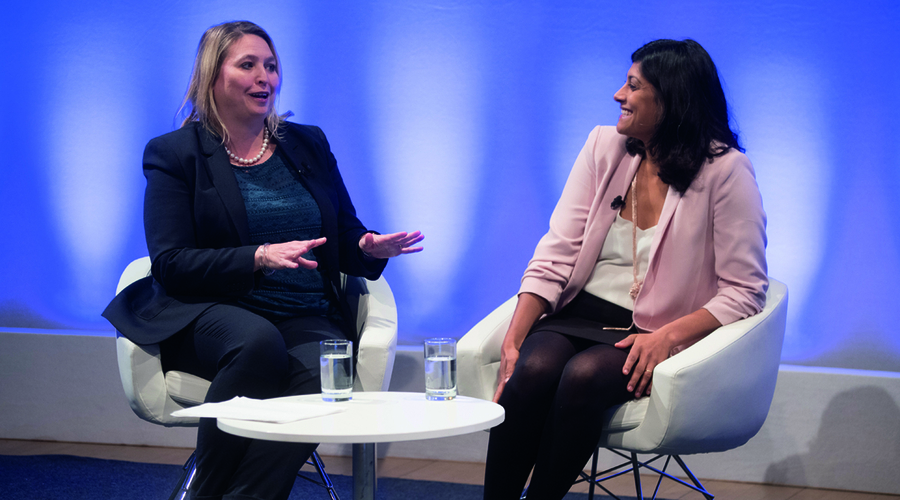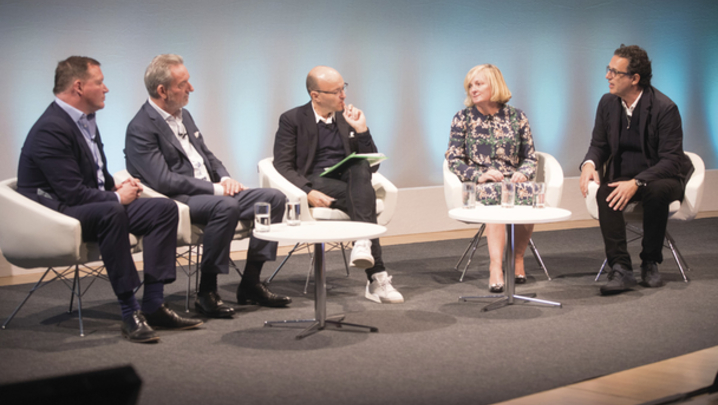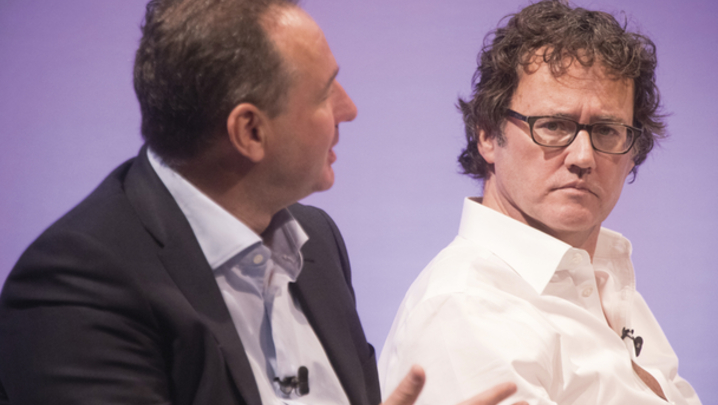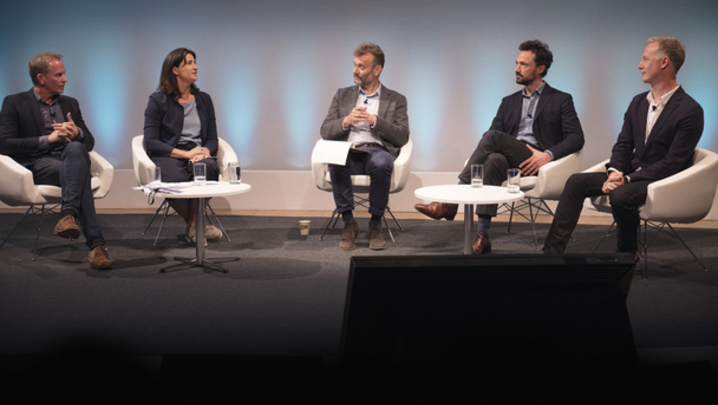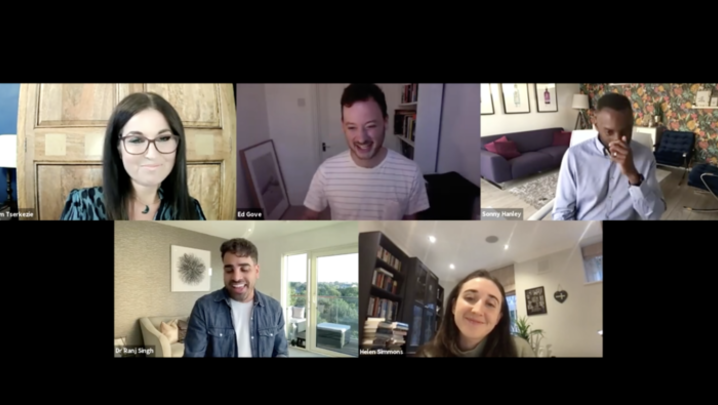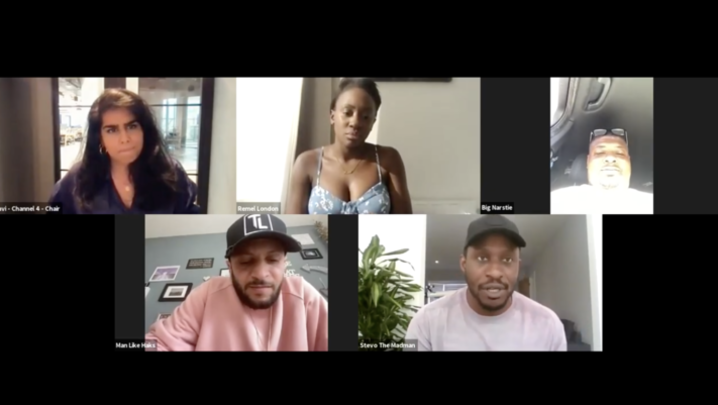Karen Bradley MP calls for a greater emphasis on production in the UK’s nations and regions
It really is an honour to address the RTS Convention. This is one of the top fixtures in a culture secretary’s diary. I have the best job in government, I get to engage with such a rich variety of sectors.
They are a huge, growing part of our economy: energetic, exciting, educational, enjoyable, a major source of jobs, they export on a massive scale and showcase the UK to the rest of the world. And television does all of these things single-handedly.
It is not my job to decide what should be on TV. My role is to support and challenge you, and to be your champion abroad. Where I think the industry can and should do more, I will not be afraid to say so.
I have a particular responsibility to make sure that public service television is serving the entire public. It is precisely because British TV is so important, so good, that I want it to reach everyone.
Success cannot only be measured by how widely it is watched. It must also be measured by how well different communities are represented on and off screen, by differences in pay, and whether the industry is flourishing in every part of our nations and regions.
British television is strong because it is diverse and will become stronger, still, the more diverse it becomes. It is the window through which much of the world sees the UK. It is only right that they see a dynamic, diverse country: TV must reflect the real world, the country we live in.
Be in no doubt that TV production is excessively concentrated in London. Pact has found that just 32% of the £2bn budget for UK productions was spent outside London and supported only 35% of the jobs.
"Just 32% of the £2bn budget for UK productions was spent outside London and supported only 35% of the jobs."
In March, I announced that the Government wanted Channel 4 to increase its regional impact. Relocation may not mean the whole business, but I am clear that Channel 4 must have a major presence outside London and, potentially, increase its commissioning [there].
In doing so, Channel 4 can play a leading role in a system that reflects and provides for the whole country.
Today, we are publishing results from a public consultation. I can announce that the overwhelming majority of respondents stated that Channel 4’s regional impact would be enhanced if more of its people and activities were located outside London.
One respondent noted that it is an important part of a sector which has “a duty to hold up a mirror to the nation”. I think that is a really nice way to sum up how we feel about Channel 4.
A significant majority agreed that increasing its commissioning quotas would be an appropriate and effective way to enhance Channel 4’s impact in the nations and regions. Emerging findings from an independent economic analysis suggest there would be regional economic benefits from relocation and increased commissioning.
Channel 4 has often led the way in representing different communities. I know Channel 4 works very hard to give a voice to as wide a range of people as possible. Its Year of Disability in 2016 was a tremendous success, and developing The Last Leg into a mainstream success is testament to its efforts.
It is this sensibility that makes it well placed to relocate outside London, along with its unique status as a public service broadcaster paid for by commercial activity, owned by taxpayers.
Channel 4 is a great broadcaster with many fantastic programmes. However, as a public asset, I expect it to do even more to support the whole country.
Decisions about its programming should not all be made in the bubble of Westminster. People seeking to work in the media should not feel they have to move to London. I will continue to work closely with Channel 4 – my preference is to agree a way forward in concert with it.
I am delighted that Alex Mahon has been appointed CEO. She has had a fantastic career in software, TV and retail. Alex doesn’t start until November, but we have already had constructive discussions.
We have got to get this right, it is about Channel 4’s long-term future, and it may take some time to resolve. We are not looking at people moving tomorrow, but I do expect change by the end of this parliament. I hope to reach agreement with Channel 4 on the direction forward by the end of the year.
The BBC has a unique place in our broadcasting ecology. I am very proud of what we’ve achieved with the new Charter. The public deserves to know how the licence fee is being spent.
We have required the BBC to improve its transparency and efficiency – establishing the National Audit Office as its financial auditor and giving it power to undertake value-for-money studies on BBC commercial subsidiaries. The new BBC Board brings effective, modern governance.
We have required the BBC to disclose the pay of talent, with a threshold of £150,000 – in line with BBC executives and management, and the civil service. The publication of BBC talent pay caused a stir, especially in relation to the gender gap. It is not for the Government to dictate how much individual stars are paid, but transparency will help ensure reasonable and fair pay levels.
The BBC Director-General has made clear his commitment to close the gender pay gap by 2020, and I fully support and welcome his action.
The Chair of the Digital, Culture Media and Sport Committee is eager to extend pay data as far as independent production companies, which the industry, including the BBC, currently feels would be excessive.
I sympathise with the principle that the BBC should be at the forefront of pay transparency, and we expect it to lead the way. I make no apology for writing to Ofcom to outline the Government’s position.
The BBC should be leading the way with both on- and off-screen diversity. Project Diamond is very much a beginning, not the end of the story.
The first stage considered 81,000 pieces of TV content. It found that, while BAME people are statistically well represented on-screen, off-screen is another matter. People with disabilities are very under-represented, both on and off screen. People with disabilities should not be limited to experiencing television as consumers. It should be a career option as well.
It is right that I should lay down a challenge to the broadcasters, the BBC Board and Ofcom to implement the changes we all want to see.
As the UK exits the European Union, strengthening existing relationships with other countries and forging new ones becomes all the more important. Television is already a leader in this area.
Securing the right deal for broadcasters is an essential part of our Brexit negotiations. Both DCMS and DExEU are working closely with broadcasters.
I have heard how important country of origin rules and European work quotas are for the sector. In terms of talent, the whole Government appreciates that creative industries operate in a global market.
We will always value immigration, including from EU countries and especially high-skilled immigration.
I will continue to engage and to discuss these critical issues with you, so, together, we can work towards the best possible outcome, which maintains the UK’s pre-eminent position in the world in TV production and broadcasting.
To conclude: diversity is not a buzzword, it is a vital phenomenon. The aggregate effect of making things fairer and more accessible can inject even more talent into our TV industry, and showcase our country to the world.
I have immense faith in you. British TV is one of our jewels and it can shine even more brightly.
In ‘Session Nine: Keynote’, the Rt Hon Karen Bradley MP, Secretary of State for Digital, Culture, Media and Sport, was interviewed by Anushka Asthana, joint political editor, the Guardian. The producers were Sue Robertson and Martin Stott.
Question & answer session with the audience
Q: Katherine Rushton, Daily Mail: Are you going to force BBC Studios to publish its stars’ salaries?
A: I am not going to reopen the BBC Charter. We agreed that it would be public service talent, and not talent paid through BBC Studios, for good reasons around commercial sensitivities.
Q: Deborah Williams, Creative Diversity Network: I am struggling to find a link between relocating Channel 4 and improving diversity. What evidence is this based on?
A: It depends on the diversity you are looking at. Diversity of regional accents, diversity of different views, opinions. Relocation might benefit those.
Q: Jane Martinson, the Guardian: James Murdoch said you refused to meet him. Does that mean previous administrations acted unethically in getting so close to the family?
A: I don’t want to get into any of those matters. I am not going to the Sky party at party conference, if that answers your question.
Q: Peter White, Broadcast: Do you have a preference for where Channel 4 locates?
A: I have no preference whatsoever. It is very exciting to see some of the suggestions coming forward and I encourage cities – and non-cities and small towns – to come forward. There is no formal process, but if they want to write to me and the board of Channel 4, they should.
Question & answer
Q: You’ve said that Channel 4 should relocate, but what if Channel 4 doesn’t agree?
A: Channel 4 is a statutory body. Parliament can legislate to change the terms. Many parliamentarians are looking to that. I don’t want to go down that route: I would much rather work with Channel 4 to come up with a solution that works for it and the public. Channel 4 can make the most amazing additional impact in the nations and regions.
Q: So you are willing to consider legislation?
A: Yes, there are early day motions, private members’ bills floating around. There is cross-party agreement that Channel 4 needs to do more. We can move to legislate, but I don’t think we will get to that point. I am confident we can work with Channel 4 to come up with something.
We want decisions to be made outside London, and I will work with Channel 4 so that we get to a point we are all comfortable with.
More people are employed in MediaCity UK [Salford] than when they were docks. That’s a fantastic outcome, a success story.
Q: You referred the 21st Century Fox bid to the CMA. Have you lost faith in Ofcom? What makes you think the CMA can make a judgement based on standards?
A: The threshold for the reference I have to make is lower than the “fit and proper” Ofcom test. I think it is important for public confidence that a formal CMA review takes place.
Let the CMA do its work, it is the expert in competition and markets, and I want it to look at the concerns raised. When we publish all the material on this you will see exactly why the referral was made.
Q: What was the clincher? Were you worried about the “Foxification” of Sky News?
A: I am in a slightly difficult situation. I can’t really get into it.
Q: Did you speak to the Prime Minister before making this decision?
A: No. I took this decision without reference to any one else.
Q: You sent Ofcom a letter regarding BBC quotas. Is Ofcom an independent regulator as long as it follows government rules?
A: It is absolutely an independent regulator but, you heard from Sharon White, I am well within my rights to set out views with regards to the consultation [on service agreements]. That is what we have done.
Q: You forced the BBC to publish top salaries. What is the answer: pay rises for women, or pay cuts for men?
A: It is not for me to make a decision. Leave it to Tony Hall and David Clementi. I am very pleased they are going to take action.

